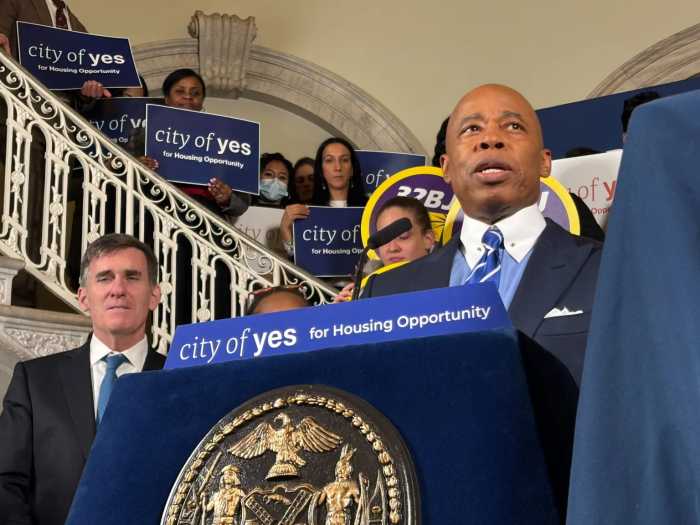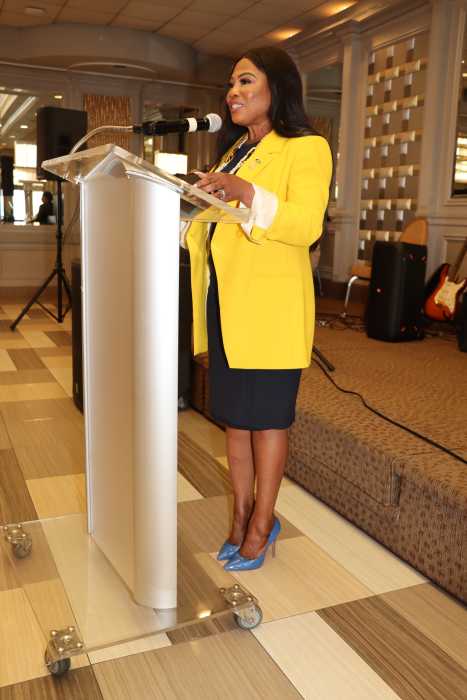In the wake of Gay City News' story last week reporting that four of the Democratic presidential hopefuls had gone on the record in opposition to the ban on sodomy in the Uniform Code of Military Justice, the party's current frontrunners, Illinois Senator Barack Obama, New York Senator Hillary Rodham Clinton, and former North Carolina Senator John Edwards told this newspaper that they too believe the policy must change.
Seven of the eight contenders for the 2008 Democratic presidential nomination have in the past two weeks stepped up in support of the privacy rights of gay military personnel.
Article 125 of the UCMJ bars both oral and anal sodomy, even though the United States Supreme Court, in its 2003 Lawrence v. Texas ruling, threw out the remaining state laws prohibiting any private, adult, consensual sexual behavior.
In an April 16 e-mail to the newspaper, Jen Psaki, deputy press secretary for the Obama campaign, wrote, “Barack Obama agrees with the Supreme Court's conclusion in Lawrence that our criminal laws should not target and demean the lives of gays and lesbians. He also believes that gay and lesbian Americans who wish to serve their country should have the opportunity to do so with dignity and respect and supports the repeal of Don't Ask, Don't Tell. Particularly at a time of war, Barack Obama feels that our military should be focusing on attracting patriotic individuals who are willing to serve, rather than excluding such individuals on the basis of their sexual orientation and their private, lawful conduct.”
A day later, Jin Chon, a Clinton campaign spokesperson, wrote, also via e-mail, “During Senator Clinton's recent remarks to the Human Rights Campaign, she agreed with Justice [Anthony] Kennedy, who wrote in Lawrence v. Texas, that 'times can blind us to certain truths and later generations can see that laws once thought necessary and proper in fact serve only to oppress. As the Constitution endures, persons in every generation can invoke its principles in their own search for greater freedom.' Therefore, Sen. Clinton believes that the Lawrence decision should be extended to the military as well.”
An April 18 e-mail from Kate Bedingfield, an Edwards spokeswoman, stated that the 2004 vice presidential nominee “believes that the treatment of all service members should be based on their role in maintaining national security, not their sexual orientation. The Uniform Code of Military Justice should conform to the Supreme Court's decision in Lawrence v. Texas.”
In making their positions public, Obama, Clinton, and Edwards join four of the other Democrats in the hunt for the party's presidential nomination – Delaware Senator Joe Biden, Connecticut Senator Chris Dodd, Ohio Congressman Dennis Kucinich, and former Alaska Senator Mike Gravel – in coupling their opposition to the current Pentagon policy barring openly gay and lesbian soldiers with an endorsement of the right to sexual privacy by such soldiers if and when they are allowed to serve.
All eight of the Democrats seeking the presidency are on the record in opposition to Don't Ask, Don't Tell, though when queried on the question of sodomy, the campaign of New Mexico Governor Bill Richardson, who served President Bill Clinton as energy secretary and United Nations ambassador, spelled out his position on open service by gays and lesbians, but did not address the private conduct issue.
The nine Republican hopefuls for president are united in their support for maintaining the Don't Ask, Don't Tell policy, with former Mayor Rudy Giuliani recently reversing his earlier advocacy of ending the ban on open gay service. At the Manhattan St. Patrick's Day Parade, Giuliani told Gay City News' Andy Humm, “The policy should stay the same while we're at war… We're in a particularly intense phase.”
Among the Republicans, who were posed the same questions as the Democrats, only Arizona Senator John McCain and Colorado Congressman Tom Tancredo responded, both reaffirming their support for Don't Ask, Don't Tell and their opposition to ending the sodomy ban. Tancredo spokesman, Alan Moore, specifically linked the two issues, saying in an e-mail, “The Congressman supports the 'don't ask, don't tell policy' therefore he also supports the military ban on sodomy.”
In fact, the bulk of the sodomy prosecutions in the military are pursued against heterosexual soldiers, according to the Servicemembers Legal Defense Network, a Washington-based advocacy group for LGBT soldiers. Gay service members facing potential sodomy prosecution are instead typically discharged under the Don't Ask policy.
However, should a Democratic president succeed in ending the ban on openly gay and lesbian soldiers serving, that victory could easily be compromised by stepped-up enforcement of the sodomy ban. In effect, service would be opened up only to sexually-abstinent gay soldiers.
Aaron Tax, an SLDN staff attorney, writing last week on the group's blog, at http://freedomtoserve.blogspot.com, pointed to the divisive impact of the current sodomy policy, both among gay and straight soldiers.
“One unforeseen consequence of the ban is that because of the threat of consensual sodomy prosecutions hanging over service members' heads, when two service members are alleged to have engaged in consensual sodomy, there is an incentive for at least one to cooperate with the prosecution and claim the activity was nonconsensual,” Tax wrote. “As a result, it is easier to convict at least one of the parties, resulting in service members, guilty of nothing more than engaging in consensual sodomy, being sent to prison.”





























